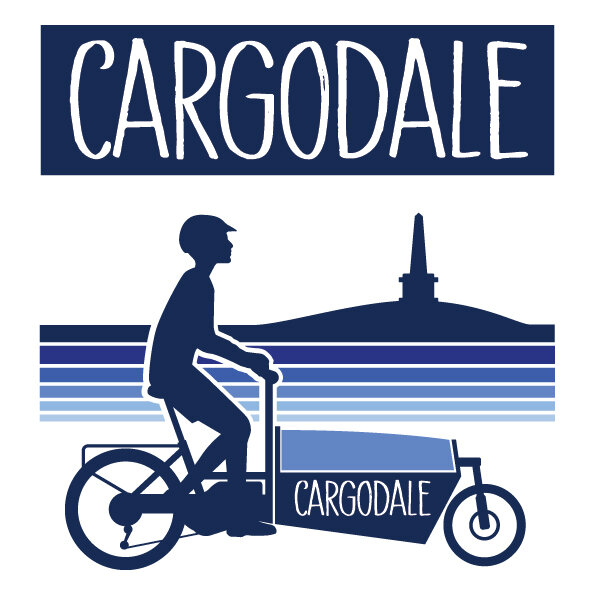Why Cargo Bikes?
Although we’ve only been up and running for a couple of months, we’ve already got used to people responding a certain way when we tell them we use bikes for delivery. Most are really positive and encouraging, but sometimes there’s also a touch of incredulity. You deliver heavy things? By bike? Around here? It’s dead hilly you know!
Yes, we know about the hills
The idea of using bikes to deliver goods is nothing new, but in the UK, it has drifted to the margins as lorries and vans have taken over. The decline in delivery by bike also seems to be linked to the rise of the supermarkets: your local butcher, grocer or baker might well have offered delivery by bike before shopping by car became the norm (think of Britain’s favourite bread advert), but in many places these days, having any local independent shops is rapidly becoming a thing of the past.
Cargo bikes also have something of a quirky image, which has been perpetuated by the attention given to extreme uses, such as moving house by bike. They’re seen as a bit “Critical Mass” and a fun but not especially practical way of moving stuff. But while you can certainly shift heavy loads under human power, it’s not what bikes excel at. Instead cargo bikes are a great example of appropriate technology - an environmentally friendly form of transport that still gets the job done.
E-cargo bikes take things up a notch in terms of load hauling ability and range, but they’re still incredibly efficient. Because they’re light compared to a motor vehicles and some of the work is still done by the rider, their energy requirements are minuscule. The electricity needed to power even a large e-cargo bike is around 1/20th the requirements of an electric van carrying the same load.
Speaking of vans, they’re one of the fastest-growing categories of traffic on the UK’s roads, a trend with some worrying implications. Over 90% of vans on the UK’s roads are still diesel, and the age of the van fleet is older than the average for all vehicles. There is also evidence that the capacity of vans is used very inefficiently: research by Transport for London found that over a third of vans run at less than a quarter full.
Obviously the current global situation has also had an impact, not just on shopping patterns and uptake of home delivery services, but also on how people get around in general. We don’t know what the shape of future travel in the UK will be at this point, but it’s not hard to imagine a scenario where more people shun public transport in favour of private cars, our already creaky road network starts to grind to a halt, and conventional delivery by motor vehicle becomes even less reliable than it is already.
Our valley has already had more than its fair share of natural disasters, and again it seems important to consider the role that our current ways of doing things may have played in these. Luckily, catastrophic flooding isn’t the only thing the Calder Valley is known for: we’re also on the map for our diverse and innovative independent businesses and community initiatives. Cargo bikes are a great fit for a friendly, low-impact approach to retail. They’re also arguably better suited to a lot of the lanes and tracks that make up our slightly unpolished transport network than a supermarket delivery van.
Traffic calming, Calderdale style
At present this whole thing is an experiment, albeit one we’ve got a very good feeling about. We’re convinced that delivery by bike not only has a future: it might be a big part of the future.


